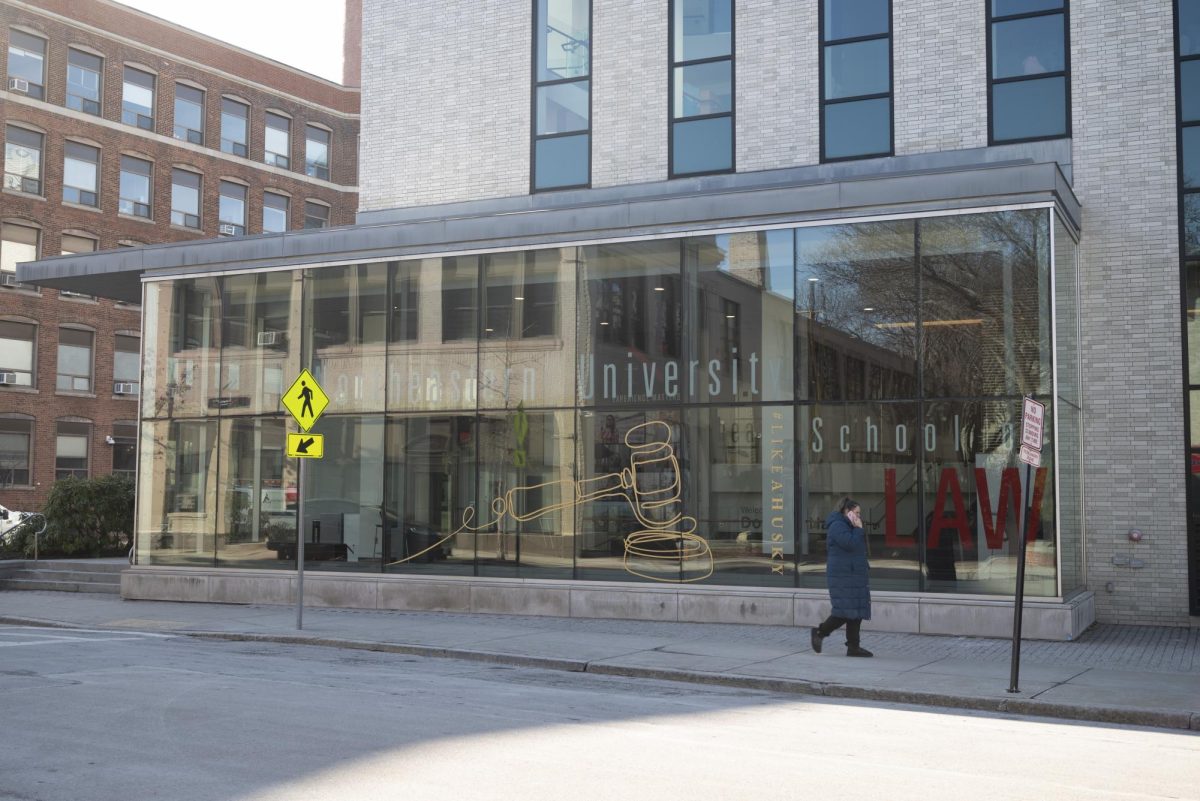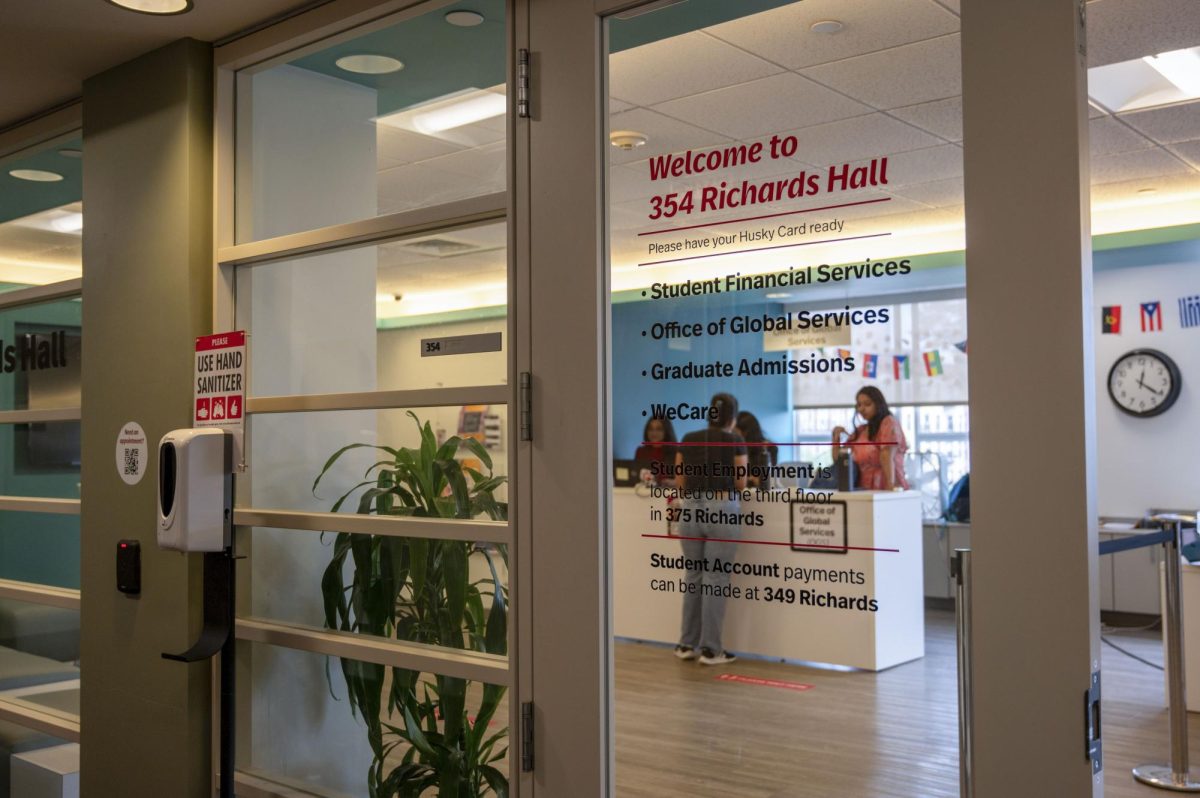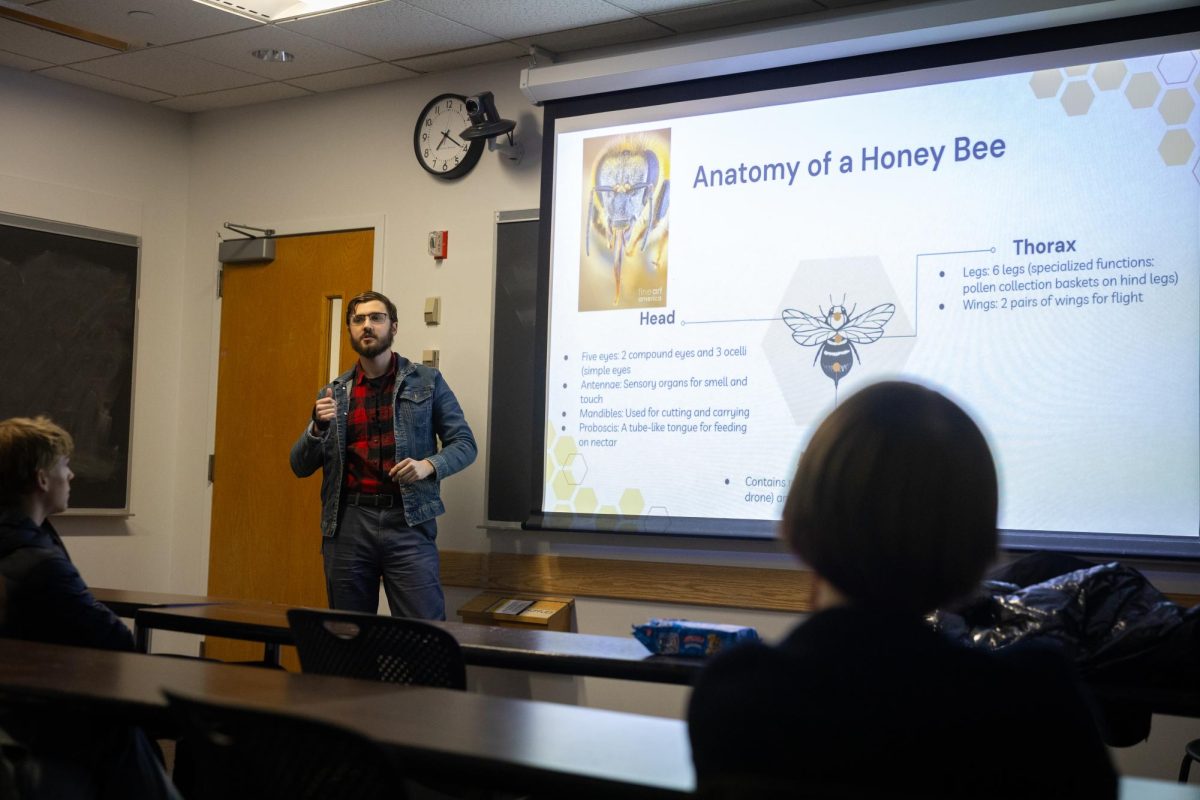This is the final part in a series examining students’ experiences with financial aid.
When Kathryn Pakenham graduates in the spring, she estimates she will be about $100,000 in debt. For the past five years, she has been financing her education without help from her parents, and with minimal help from Northeastern.
Pakenham’s parents are unable to help her because of financial instability, though she knows they would help if they could.
“They’ll do whatever they can, whether it’s giving me $50 when I go home for Christmas or getting me a discount on art supplies,” said the senior architecture major.
Other parents choose not to help their children pay for school, but their incomes are still factored into the bill the student is expected to foot.
Although the Free Application for Federal Student Aid (FAFSA) provides students the option of declaring themselves financially independent, the requirements are strict, excluding most students.
Seamus Harreys, dean of student financial services, said students generally must either be over 24 years old, in graduate school, married, orphaned, a veteran or must have children or other dependents in order to be considered independent of their parents.
“The federal government has limited us very much,” Harreys said. “During the ’80s, there were a lot of students coming in and saying, ‘My parents aren’t willing to help and I’m not talking to them and I need to be receiving more aid.'”
Harreys said students whose parents are unwilling or unable to contribute to their educational costs have few options, since the “expected family contribution,” as determined by FAFSA, is the nationwide standard for financial aid.
“The institution cannot insert themselves in that relationship between that student and their parents. Typically you’re talking about loans. We will be there to counsel the student. Our aid counselors are available to assist that student, but they’re in a very difficult situation,” Harreys said.
Pakenham said she has met with her financial aid advisors — she has had three different ones during her years here — but found little support from them. “I was on the brink of tears, and they were just like, ‘You need to get a loan,'” she said. “I think they’re trained to just ignore it … I think I’m being treated a lot like 100 other people.”
For these reasons, Pakenham said she plans to go elsewhere for graduate school, although Northeastern offers a graduate program for architecture.
“I’m going to be smart about grad school and go somewhere that supports me,” she said.
During her five years at Northeastern, Pakenham said she has consistently received less than $4,000 a year from the university in grants, along with government subsidized Stafford loans. Without help from her parents, her only option was to take out loans and watch them add up.
“I feel like [the university] knew I wouldn’t transfer, so they didn’t do anything,” she said, adding that it is a difficult problem to ask for help with. “It’s embarrassing; I think you always feel like something will change.”
Although Northeastern students have the advantage of the co-op program to make some extra money, Pakenham said her co-ops only paid enough to help her pay rent and pay off her credit card bill from the previous semester. Although she was able to live off the money, it never slowed her quickly accumulating debt.
Pakenham did her co-ops at local architecture firms, and some of her experience included working on designs for West Village G and H.
She said she was paid well, and in some cases, was offered the opportunity to stay on part-time after her co-op ended. Although she tried this for a while, Pakenham ultimately decided it was just too much.
“I decided to reward myself and just enjoy college,” she said. “I can deal with the debt later.”
Sean Casey, a senior electrical engineering major, also chose to relax his finances and enjoy college, although he now feels he could have made some better choices about using his co-op money.
“I pretty much pissed that money away,” he said. “I definitely could have done it better, and that’s what I regret.”
Casey has received between $12,000 and $16,000 a year in grants from the university in his five years here, and will be graduating with about $65,000 of debt. He said paying off the debt will be his first priority when he graduates. Although he said he has questioned whether the experience was worth the debt, he now feels it has been worthwhile.
“I already got a job, and that colors my opinion,” he said. “I’m happy with the situation I’m in right now, but if you’d asked me that a few months ago, it might have been different.”
Jason Martino, a senior music technology major, has no doubt about his ability to pay off his student loans. Martino is also paying for tuition on his own, although he said his parents have helped him out with rent over the years.
Casey has gotten more help from the university than Pakenham or Martino, which eases the pressures of footing his own bill. He said although his aid has varied every year, he has always received between $17,000 and $22,000, including university grants, work study and government subsidized loans. Although he has been forced to budget carefully, he said it isn’t too much of a strain.
“There will be plenty of time to live lavishly later,” he said. “College students are expected to be poor.”
Despite budgeting, help from Northeastern and well-paying co-op jobs, Martino will still graduate heavily in debt, he said. He expects to owe about $65,000, and he said that doesn’t bother him.
“I don’t mind having that debt, because I’m confident in my abilities after I graduate,” Martino said. “That’s kind of a na









